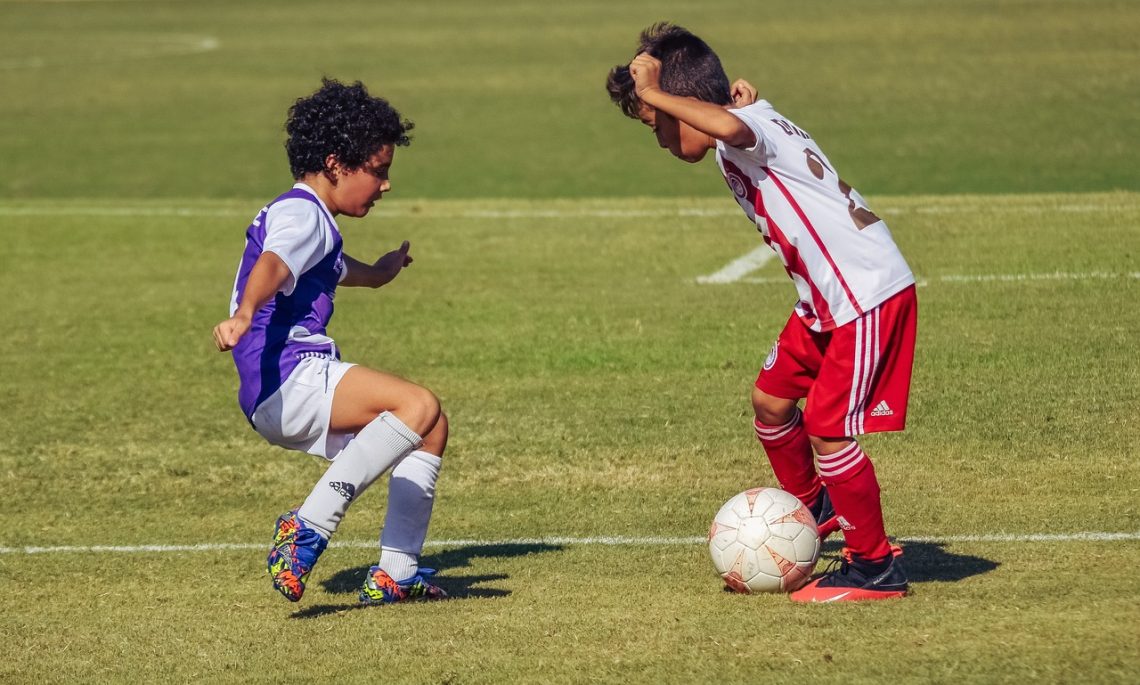
Should You Let Your Kid Play Football? (Experts Debunk Youth Football Myths)
Parental fear deprives many children of the lessons and benefits of football. Yes, playing football at the youth level comes with risks, but maybe you are one of those parents who didn’t even sign up your kid for youth football because of certain risks that were actually myths. If so, I’d really like to dispel some youth football myths for you.
Don’t Fall for These Football Myths
Myth 1: Football Players Perform Poorly in School

While some educators see sports, especially football, as contributing to academic achievement, others argue that kids who have never participated in sports are more likely to perform better than kids athletes.
Why would that be true?
Studies have revealed that routine participation in physical activities and sports like football can lead to students having higher levels of attentiveness in class. The lessons the kids learn in sports go far beyond the football field. Skills in football require hard work, creativity, perseverance and practice which are eventually perfected through time and repetition. These skills then play an important part in a kid’s academic performance. Further, learning playbooks, techniques and assignments has been known to enhance the cognitive and memory functions of the brain, helping children perform better in exams and academics.
There’s a growing body of research that connects sports like football to improvements in educational achievement. It’s long been understood that football can promote children’s health, but now there is solid evidence to suggest that football can have a strong impact on a child’s overall education. For example, the Whitley study revealed how 300,000 youth athletes in North Carolina decisively outperform non-athletes in attendance, GPA and graduation rate.
Myth 2: Football Players Become Bullies or Thugs

As much as the media attempts to link them together, it is just not the case.
While there is a small minority of athletes who can be accused of “anti-social behavior”, not all football players should be considered as “people who like to make trouble.” In fact, it’s quite the opposite. Playing football teaches children the importance of character. Respect for authority, self-discipline, patience, leadership and perseverance are traits that are all taught and developed on the football field. These traits can not only help kids succeed academically but can also serve them well in every other area of their lives.
Super Soccer Kids, for example, is a platform where your kids get to play in a non-competitive environment and learn the importance of teamwork. Experienced and qualified coaches will work with your children and instil values and life lessons that will teach your kids to stand up for themselves and others.
Myth 3: Safety Risks Are Heightened at Youth Football Level

In general, all sports have a risk of injury. The more participation or contact in a sport, the greater the injury. However, one should remember that youth football is not the NFL (National Football league). The velocity of the hits that are constantly present in the NFL is not found on the youth football level. The most obvious difference is that children will not throw or kick as far as older players and they cannot either run as fast as them. It may surprise some parents but youth coaches are well aware that, at the youth level, football among 5 to 15 years olds has fewer injuries than organized soccer among older players.
In addition, trained youth coaches use specific strategies and well-planned practices to reduce injuries, such as limiting the number of hits in practice. Another key rule in football safety is creating awareness about safety precautions and the importance of using proper equipment.
Myth 4: Youth Football Is Expensive
 If you are a parent with a kid playing ice hockey or lacrosse, you know how expensive sports can be these days. While there are many hidden and unanticipated expenses for kids’ sports, football is often considered the cheapest of the “main sports.” Basically, all you need to play football is a ball and a goal.
If you are a parent with a kid playing ice hockey or lacrosse, you know how expensive sports can be these days. While there are many hidden and unanticipated expenses for kids’ sports, football is often considered the cheapest of the “main sports.” Basically, all you need to play football is a ball and a goal.
Like cross country, football is an affordable sport as it is a large team sport and hence the price is kept low.
Conclusion
Many of the people claiming football to be dangerous or expensive haven’t even played football, but they are keen on perpetuating such myths -after all, fear is what sells stories. However, now that you know your kids won’t end up as school failures or with chronic traumatic encephalopathy (CTE), are you interested in enrolling them in a youth football program? If yes, how about reaching out to Super Soccer Kids?

What Is a Breast Milk Relay?
You May Also Like

THE TOP GUIDE TO CHILDCARE WHEN DIVORCING (Part 2)
2022-03-31
Fun and Simple Tips To Build a Child’s Vocabulary
2022-01-27
